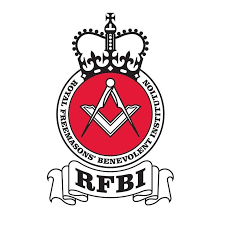Amendments to the WHS Act (NSW)
The Work Health and Safety Amendment (Review) Act 2020 recently passed by the NSW Parliament has enacted the following key changes to NSW WHS laws:
- Enhancement of the Category 1 offence by including “gross negligence” as a fault element – To make it easier to prosecute and create a stronger incentive for duty holders to manage WHS risks.
- Prohibition of insurance and indemnity arrangements – To ensure people cannot avoid responsibility for paying WHS fines.
- Increased penalty amounts for all WHS offences in line with the Consumer Price Index – To ensure penalties retain their deterrent value.
- Extension of time in which a person can ask the WHS regulators to start a prosecution in response to a Category 1 or Category 2 offence from 12 to 18 months and addition of a requirement that the WHS regulator provide updates every three months to the requester until a decision to prosecute is made – To ensure that during investigations of workplace accidents, families are kept informed and have access to an effective review mechanism for decisions not to prosecute.
- Clarification that a Health and Safety Representative (HSR) can choose their course of training – To avoid unnecessary delays which can affect an HSR’s ability to fulfil their role and exercise their powers.
These changes, which came into effect 10 June 2020, will assist in improving compliance and enforcement measures for the NSW WHS Regulators, to make the lives of workers and business owners healthier, safer and more productive.
Article Source – Safe Work NSW
Overall Summary
The main impacts of the new legislation are as follows:
- Increases the penalties applicable:

- The WHS Act expands Category 1 offences to include a fault element of ‘gross negligence’ in addition to ‘recklessness’. So as opposed to the standard of ‘recklessness’, which, at times is difficult to prove, ‘gross negligence’ does not require prosecutors to prove any intent to disregard a risk of death or serious injury or illness. This is expected to make it easier for regulators to prosecute Category 1 offences in NSW.
- The time for which a person can make a request to a regulator to bring a prosecution regarding a workplace incident has expanded from 12 to 18 months (refer to Section 231 of the WHS Act).
An outline of the impact the new legislation has on insurance and indemnity arrangements for NSW businesses is as follows:
- The exposure to WHS fines and penalties has just increased both in the potential size of the penalties, the exposure to more severe penalties and the fact that the penalties will no longer be able to be indemnified by insurance.
- ML policies will at this stage still provide legal defence costs (dependant on the insurer) and defence costs will become even more important given the above increased exposure.
Now more than ever, due to no longer being able to insure fines, it’s so important to get your WHS systems up to date and implemented correctly. If you need any assistance in this area, Saunders Safety and Training can help you. They provide services related to WHS Audits, WHS Training and WHS Systems & Development. Please don’t hesitate to contact your Account Manager for more information on 9587 3500.















